Easy Code for Players to Break 5e
Fans ofDungeons & Dragons 5eknow their spells can spell the difference between successful encounters and a grim demise. After all, spells devastate entire battlefields, charm and amaze others, or even make difficult situations much easier to bear with. Moreover, adventuring parties need spellcasters to tap into their magical prowess to provide a wealth of advantages to their comrades.
However, characters should start to consider using their spell list to achieve more creative effects. Players interested in transforming their spellcasting experience inD&D 5ecan capitalize on certain spells to achieve a wide variety of feats that can greatly benefit their parties.
Updated on 14 April 2021 by Rhenn Taguiam: Thanks to new releases such as Tasha's Cauldron of Everything , Dungeons & Dragons 5e players have more spells to add to their repertoire of wonders. As some creative Bards and Warlocks could prove, some of the best Spells in D&D 5e actually seem the most "mundane." After all, there's no need for a devastating Fireball when players can solve everything with a good old fashioned Magic Missile. For players who want to create diverse spellcasters, some of the spells below may end up saving them from a pinch.
15 Mind Sliver (Enchantment Cantrip)

Courtesy of Tasha's Cauldron of Everything , players can now make their Characters more attuned to psychic abilities. Wizards now have access to Mind Sliver. This spell has an effective range of 60 feet, only needs a Verbal component, and can be cast within an Action. Spellcasters release a spike of psychic energy that disorients its target. Despite being a Cantrip, Mind Sliver shines through its innate effect.
Enemies hit by Mind Sliver need to make an Intelligence Save or take 1d6 Psychic Damage as well as suffer a -1d4 penalty on a Saving Throw prior to the Player's next turn. Since most non-Spellcasters treat Intelligence as a dump stat, Mind Sliver almost always work as a debuffing Spell.
14 Shape Water (Transmutation Cantrip)
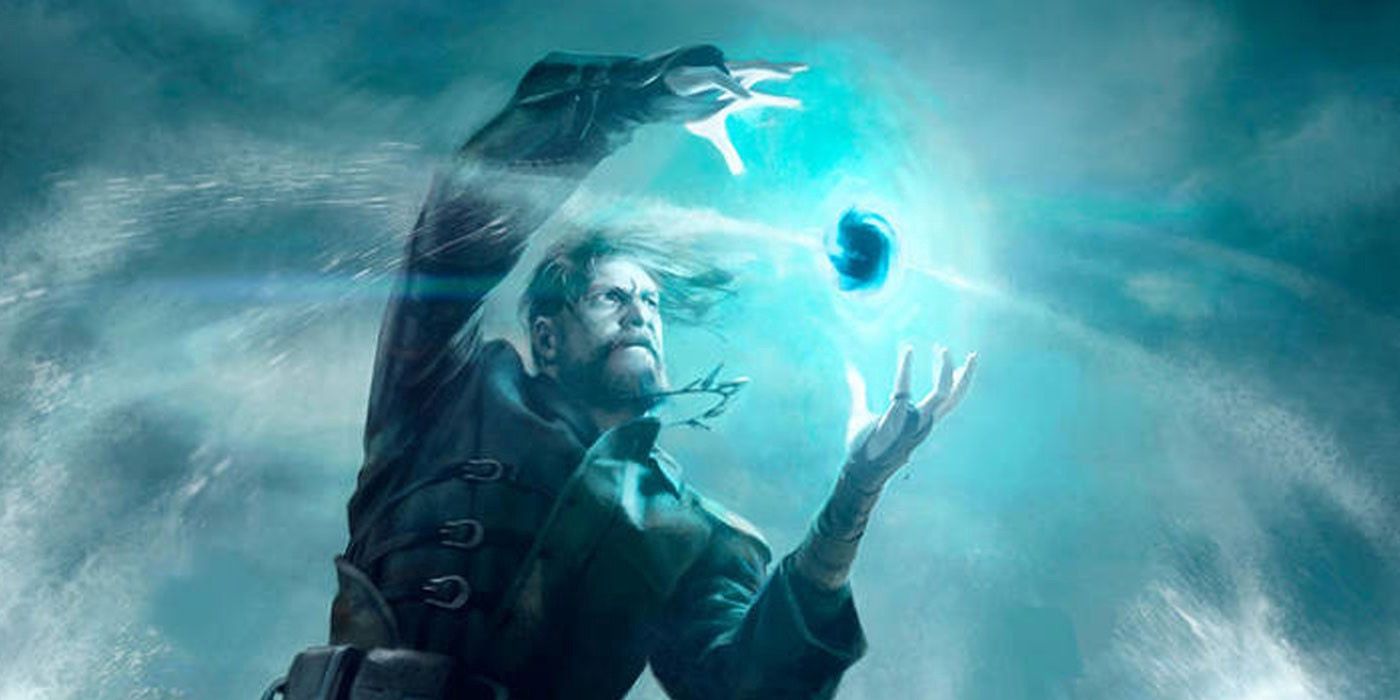
When players think of spells, they think of damaging fireballs and chilling rays. However, Shape Water from Xanathar's Guide to Everything serves as one of the most useful Spells in the entire Edition. Spellcasters can use Shape Water within a 30-foot range with only Somatic components. It allows them to manipulate an area of water that fits within a 5-foot cube. They can move or freeze water, change its opacity and color, or even animate it.
Things that spellcasters create or manipulate with Shape Water can last up to an hour. Despite the Spell's simple nature, its effects can have major implications. For instance, players can freeze water into walls to block enemies, freeze puddles to create a step-by-step bridge, or even hide messages in puddles of water.
13 Alarm (1st-Level Abjuration)

For fast-paced encounters, it seems the Alarm doesn't boast a lot of benefits. The Spell affects an area of a 20-foot cube for as long as eight hours. What good would Alarm's effect do if the battle is already underway? In a world where only the paranoid survive, Alarm is a gift from the gods.
To use Alarm effectively, spellcasters should never prepare this spell. Rather, they should acquire Alarm as a Ritual as soon as possible. That way, players can cast Alarm as a Ritual prior to long rests, ensuring the party they aren't interrupted by enemies while asleep. Despite the mundane nature of this usage, a party can thank Alarm if they're involved in a high-stakes campaign involving spies and treachery.
12 Find Familiar (1st-Level Conjuration)
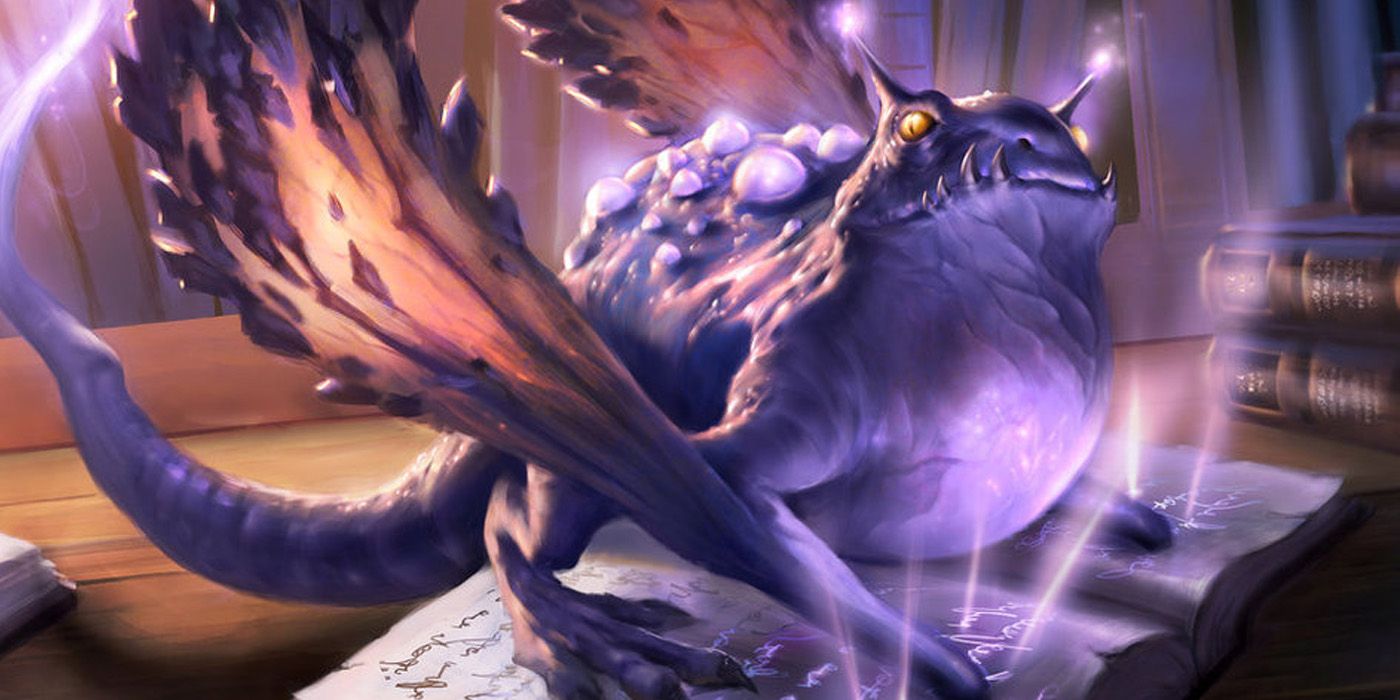
Some Spellcasters opt to get pets for the novelty, and only use Find Familiar to summon them "for the lolz." This Ritual takes up an hour to cast, requiring Verbal, Somatic, and Material components. With such strenuous requirements, is a familiar even worth it? Interestingly, despite their lack of attack abilities, a familiar can provide advantages inside and outside of combat.
For instance, a familiar can instantly become the party's scout. Thanks to their mostly-Small size, they're barely noticed in crowded environments. Spellcasters also gain access to what the Familiar sees and hears, as well as extrasensory abilities their familiars have. Lastly, familiars can "deliver" Spells that the Spellcaster casts, as though they've cast it themselves. This instantly allows them to greatly increase a character's effective combat range.
11 Shield (1st-Level Abjuration)
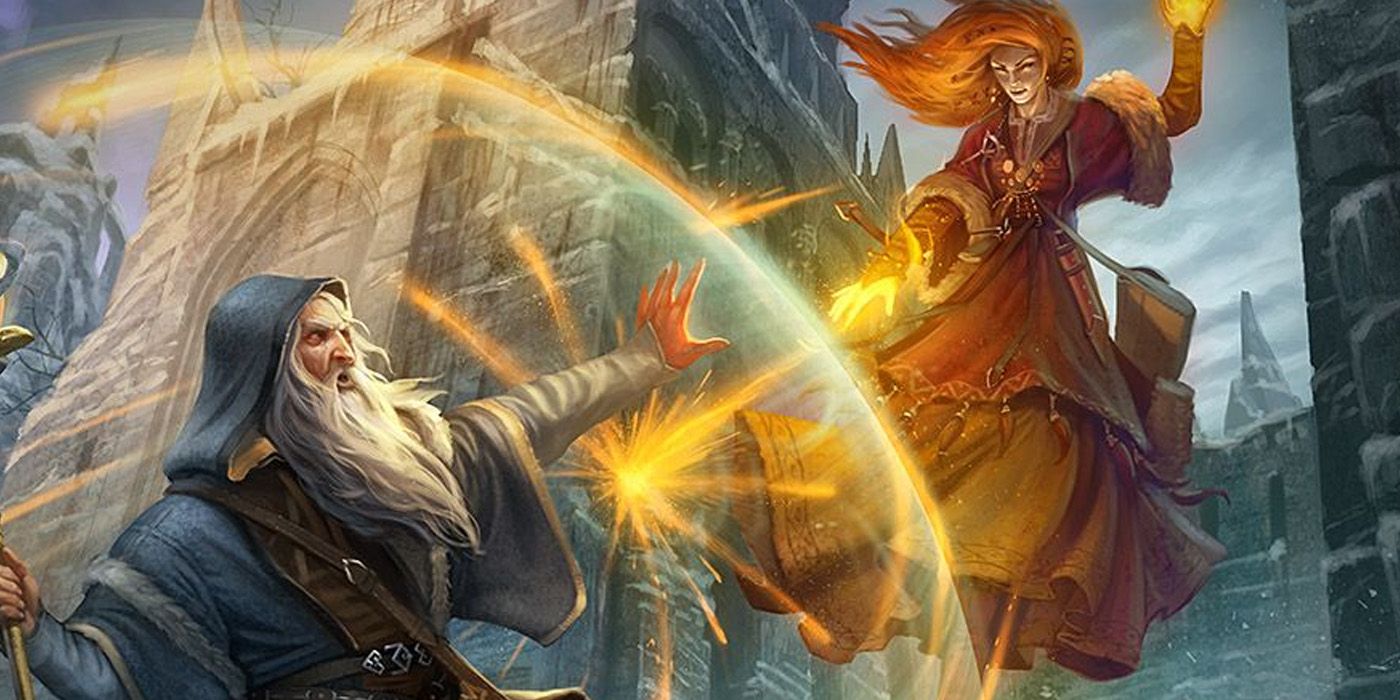
Any quick-access Spell that provides protection easily becomes useful for any character, and Shield fits in this category. Spellcasters can use Shield as a Reaction, with only Verbal and Somatic components. Shield forms a barrier between the caster and an incoming attack, giving them +5 AC until their next turn. Additionally, the caster is immune to Magic Missile until the start of their next turn.
At its core, Shield is handy across any level as players since cast the Spell after the attack roll. This perk means spellcasters can use Shield to force an attack to miss them. Additionally, using Shield alongside Mage Armor can give a Spellcaster an AC as high as 17 + their DEX Modifier, as long as they have Spell Slots to spend.
10 Guidance (Divination Cantrip)

Aside from being a handy combat spell, Guidance can be a great asset for ordinary feats. Guidance is a touch-based spell (Verbal, Somatic) that lasts a minute with concentration. The caster bestows divine guidance to the target, allowing it to add a 1d4 to the result of any ability check. This number might seem small, but it can do wonders in any campaign's major moments.
For instance, Guidance can benefit checks that require investigation or study. Characters can benefit from Guidance while interrogating NPCs or navigating in social events.
9 Message (Transmutation Cantrip)
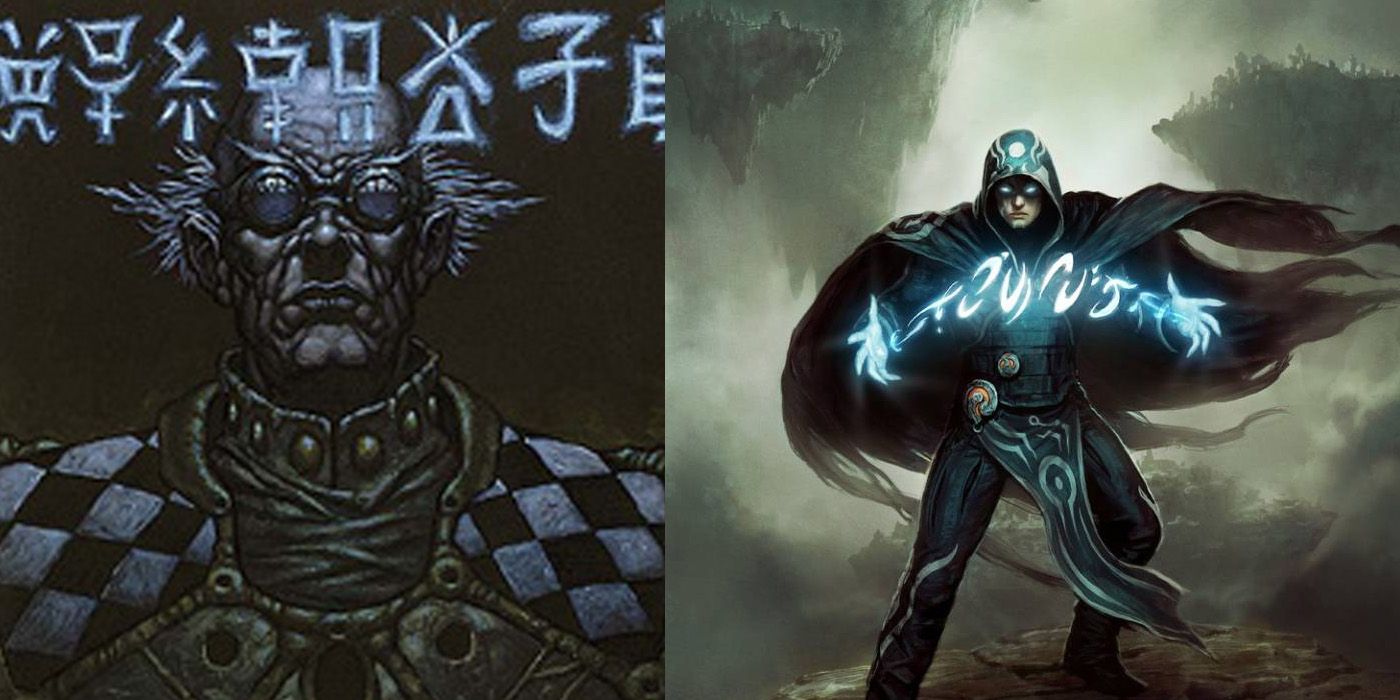
Adventurers who find themselves in trouble might not have room to communicate. Thanks to Message, they may be able to communicate with allies to formulate a strategy. Message is a directed spell (Verbal, Somatic, and requires a piece of copper wire) that allows the caster to whisper a message that only a target within 120 feet can hear. Moreover, the target can whisper a reply that, again, only the caster can hear.
Message can help cornered party members get out of sticky situations. For instance, this spell can help confront dangerous NPCs or navigate a maze.
8 Mage Hand (Conjuration Cantrip)
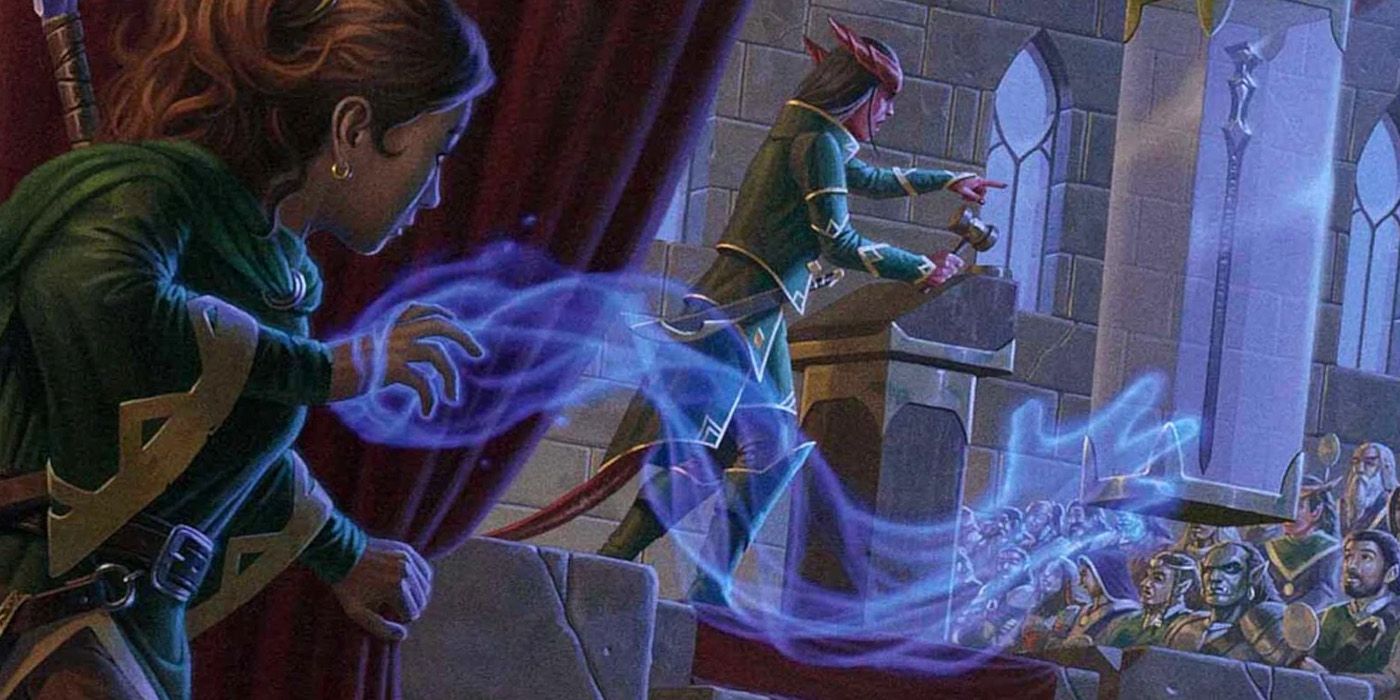
Players absolutely hate it when their characters end up activating a trap or triggering an alarm by accident. Mage Hand helps players save unnecessary damage as it can do most of these actions from a distance. It's a ranged spell (Verbal, Somatic) that summons a spectral hand that floats in any location within 30 feet. This hand can interact with objects, but can't carry more than 10 pounds, activate magical items, or attack.
Mage Hand serves as a handy way (no pun intended) of tinkering with objects in suspicious areas such as a Wizard's Tower or an abandoned dungeon.
7 Detect Thoughts (2nd Level Divination)
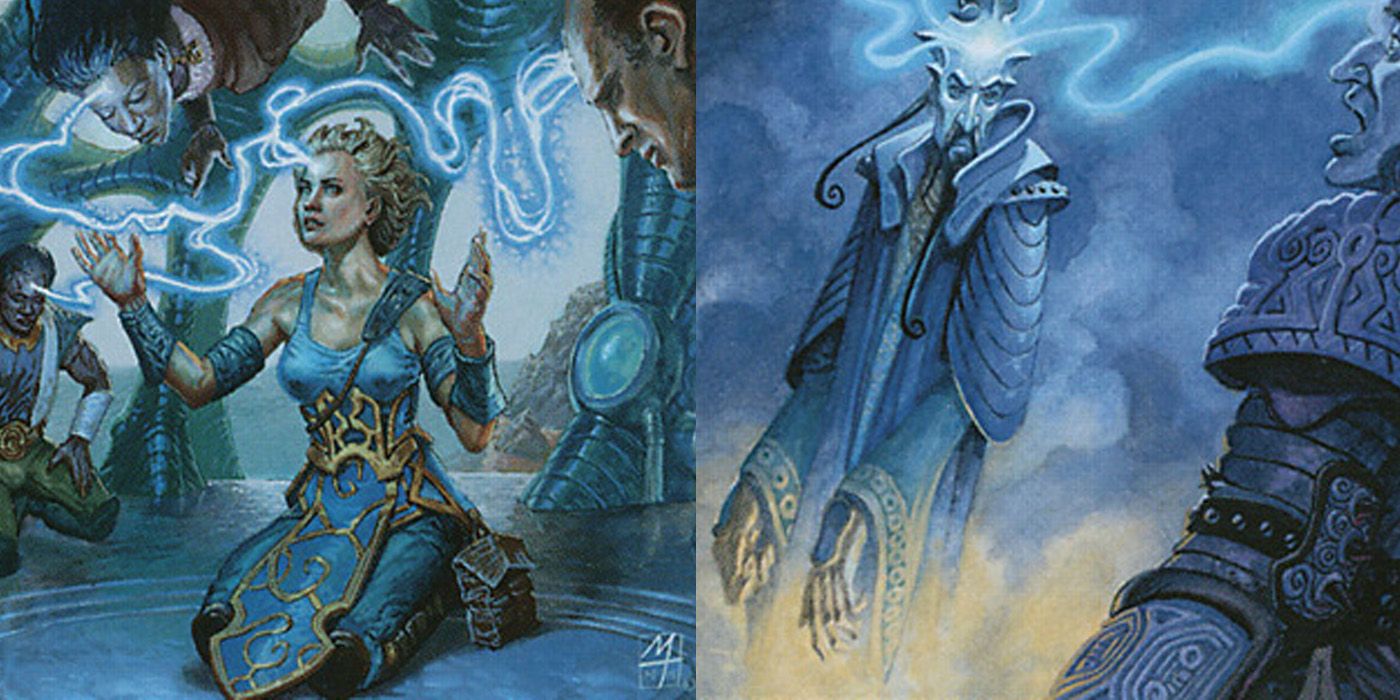
When used correctly, Detect Thoughts can easily be one of the most useful spells in a Wizard, Sorcerer, or Bard's arsenal. It's a self-directed spell (Verbal, Somatic, and requires a copper piece) that lasts up to a minute with concentration. In essence, Detect Thoughts allows the caster to peer into the surface thoughts of a target within 30 feet.
Moreover, the target needs to make a WIS Save should the caster decide to probe further. This spell comes in handy when questioning NPCs, as hearing questions will naturally change thoughts.
6 Spare The Dying (Necromancy Cantrip)

Spare The Dying is another combat-centric cantrip that players don't realize can be an invaluable asset outside encounters. It's a touch-based spell (Verbal, Somatic) that stabilizes living creatures that hit 0 HP. This cantrip can be very useful to save NPCs that have just been attacked unexpectedly, and may even sway other reluctant NPCs to the side of the players.
Moreover, Spare The Dying serves as a great way to build relationships with NPCs. For instance, the players can instantly prove they're trustworthy by saving the life of a friend or a loved one with this handy cantrip.
5 Minor Illusion (Illusion Cantrip)
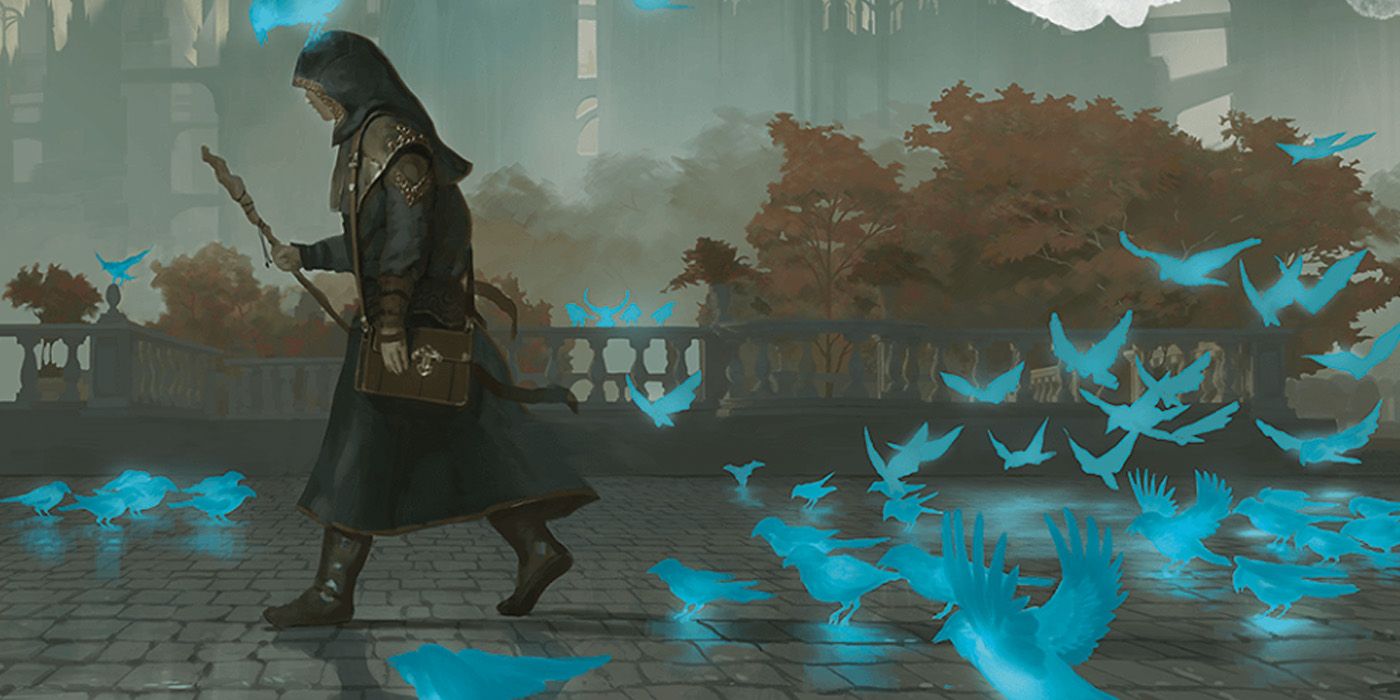
Minor Illusion might seem like a waste of space in a caster's build, but it can do wonders in times of need. It's a ranged spell (Somatic, and requires a bit of fleece) that affects a five-foot cube in any area within 30 feet. This spell allows casters to create different sounds or create an image (without sensory effect) that lasts for a minute.
Creatures that use actions to examine the image or the sound will realize it's an illusion with the right INT (Investigation) check. However, casters who use Minor Illusion would've likely left the area or had enough time to plan another action, making this useful to run from enemies.
4 Comprehend Languages (1st Level Divination)

Explorers interested in learning about ancient civilizations should get Comprehend Languages. This self-directed spell (Verbal, Somatic, and requires a pinch of salt and soot) lasts for an hour. When activated, Comprehend Languages enables casters to understand the literal meaning of written languages and spoken languages.
Casters need to listen to understand the spoken language, and they need to touch the surface where the language is written. It can't decode glyphs or secret messages in text, especially if they're not part of a written language. Despite this setback, this also means players can deduce whether "weird scribbles" they see in a dungeon are of an ancient language or a code.
3 Faerie Fire (1st Level Evocation)
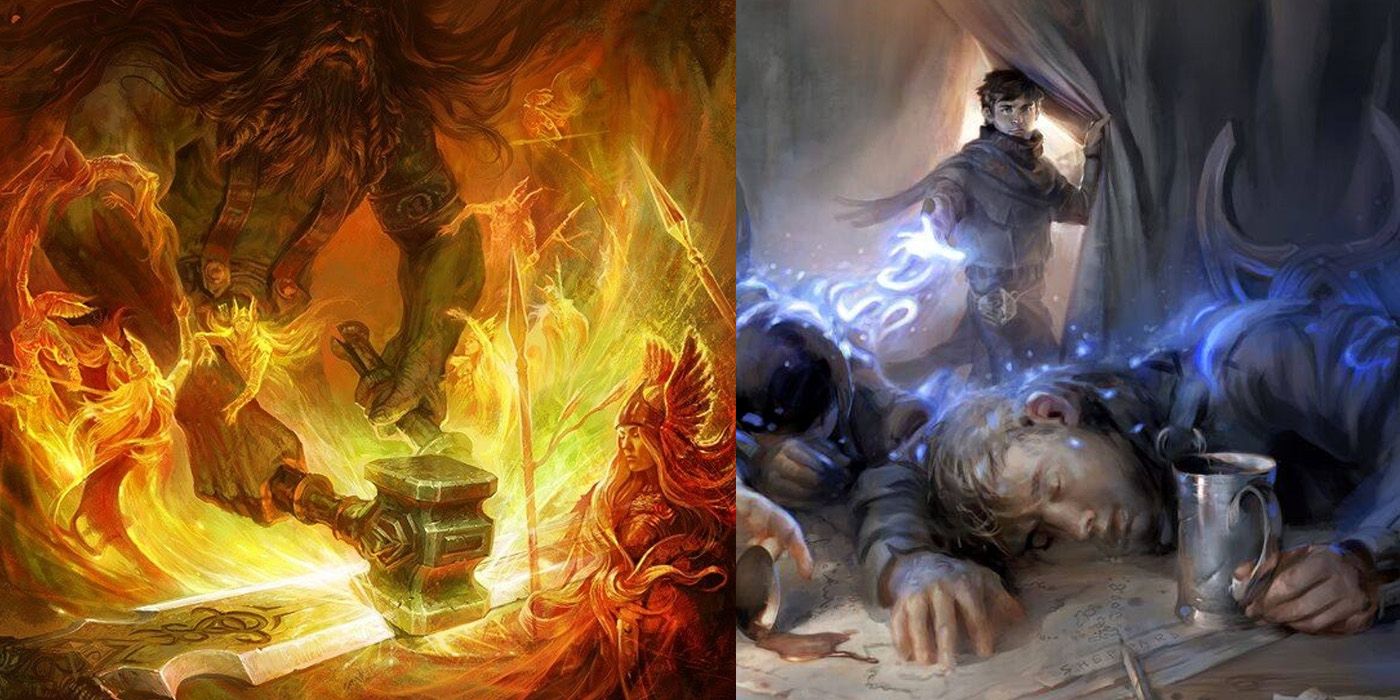
Detecting invisible creatures can be a pain, but Faerie Fire can make their presence known. Faerie Fire outlines all objects within a 20-foot cube, provided it's 60 feet away from the caster. This spell (Verbal) can last for up to a minute with concentration, which is enough for Bards to spot hidden or invisible creatures in an area of interest.
Aside from providing advantages to attackers that try to hit the "detected" creatures, this spell can be extremely handy when trying to detect spies or outliers in an area.
2 Detect Magic (1st Level Divination)
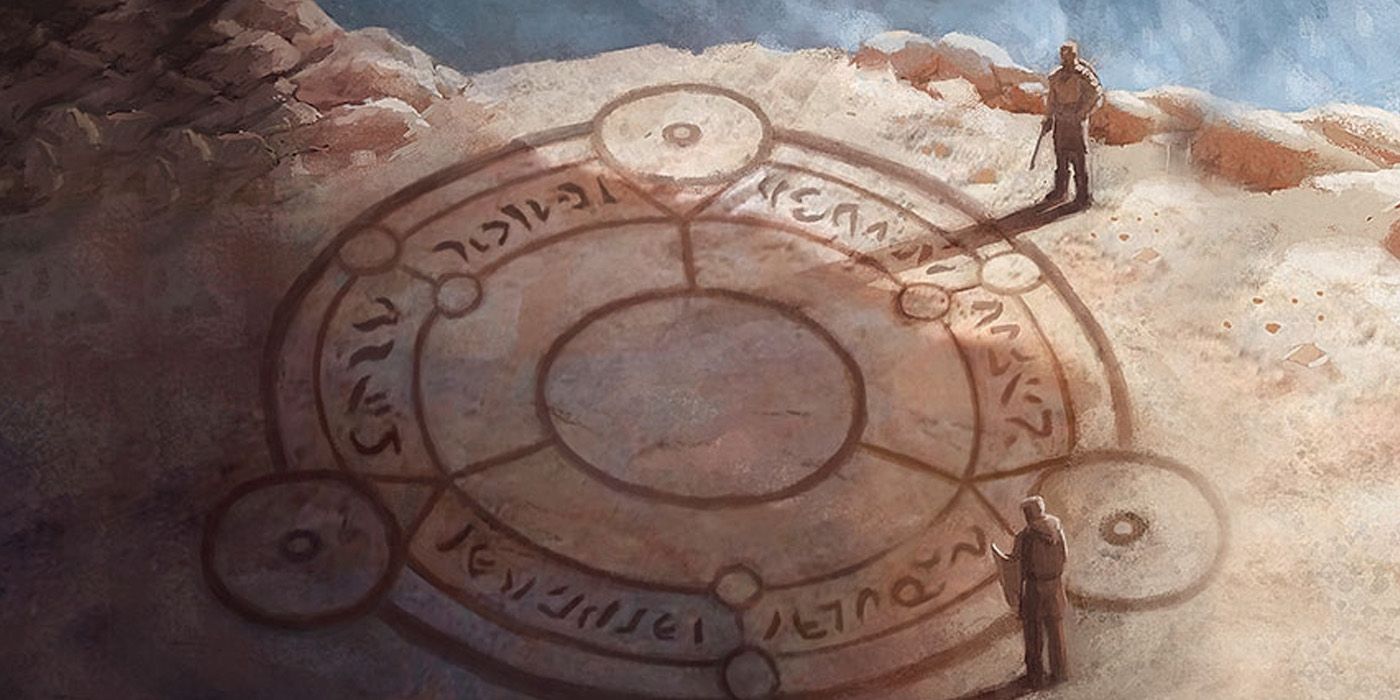
Players ofD&D 5ewill most likely find themselves in worlds of magic and sorcery. As such, it's important to make sure there's a way to know if there's any kind of magic in the area. Any spellcaster capable of casting Detect Magic should get it as a spell. This self-directed spell (Verbal, Somatic) lasts 10 minutes, which is enough to gain a lot of benefits.
To elaborate, this spell helps casters detect magic within 30 feet as a faint aura. As such, casters can sense the presence of magic around an object or a creature and even learn the dominant school of magic. This spell is useful when detecting traps, or simply getting a "feel" of what magic persists in an area.
1 Purify Food And Drink (1st Level Transmutation)
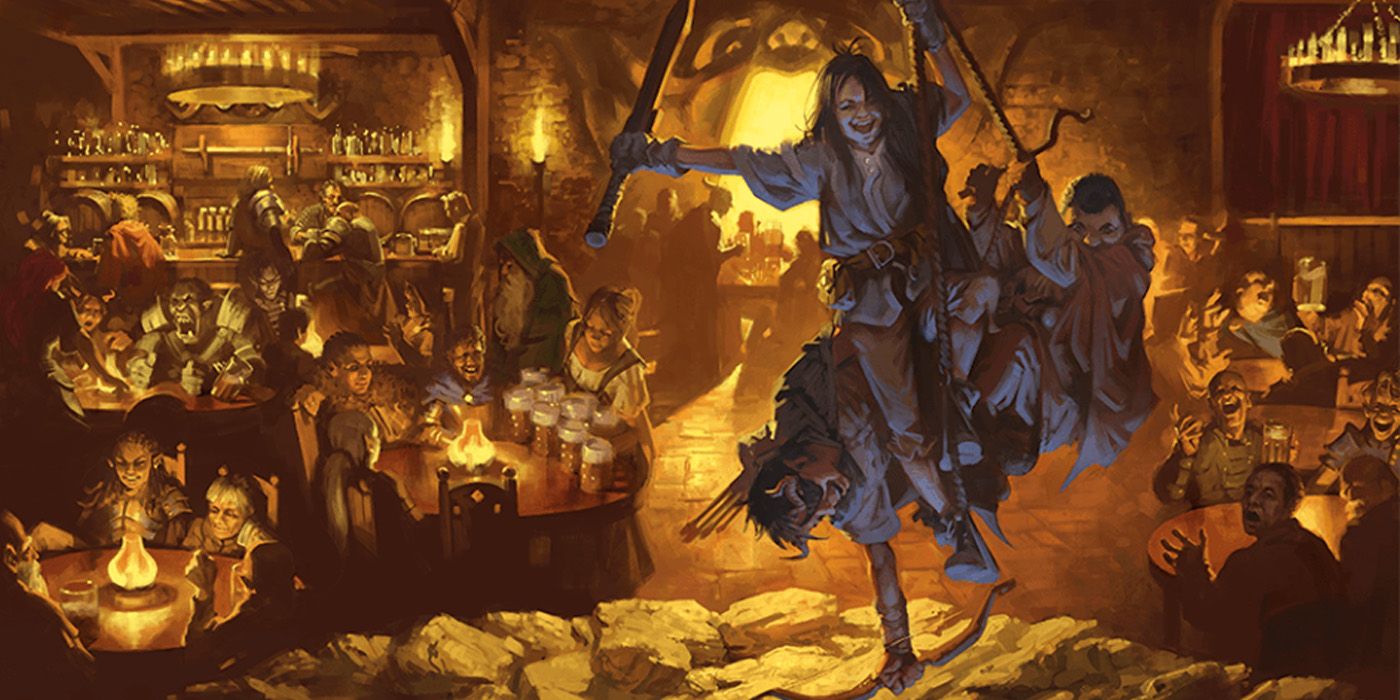
Surprisingly enough, Detect Magic isn't at the top of this list of useful spells. While most casters will look at this spell with disdain, Purify Food And Drink can be a literal life-saver. This instantaneous spell (Verbal, Somatic) can purify all nonmagical drink and food within a five-foot sphere, provided it's 10 feet away from the caster.
While this spell might not necessarily be useful all the time, it helps ward off unnecessary assassinations and poisons, especially to Faction NPCs. Most campaigns require players to attend some sort of banquet and gathering, and it's always a useful spell to use in the presence of kings, emperors, and those with positions of power.
Source: https://gamerant.com/dungeons-dragons-dd-5e-spells-useful/
0 Response to "Easy Code for Players to Break 5e"
Post a Comment